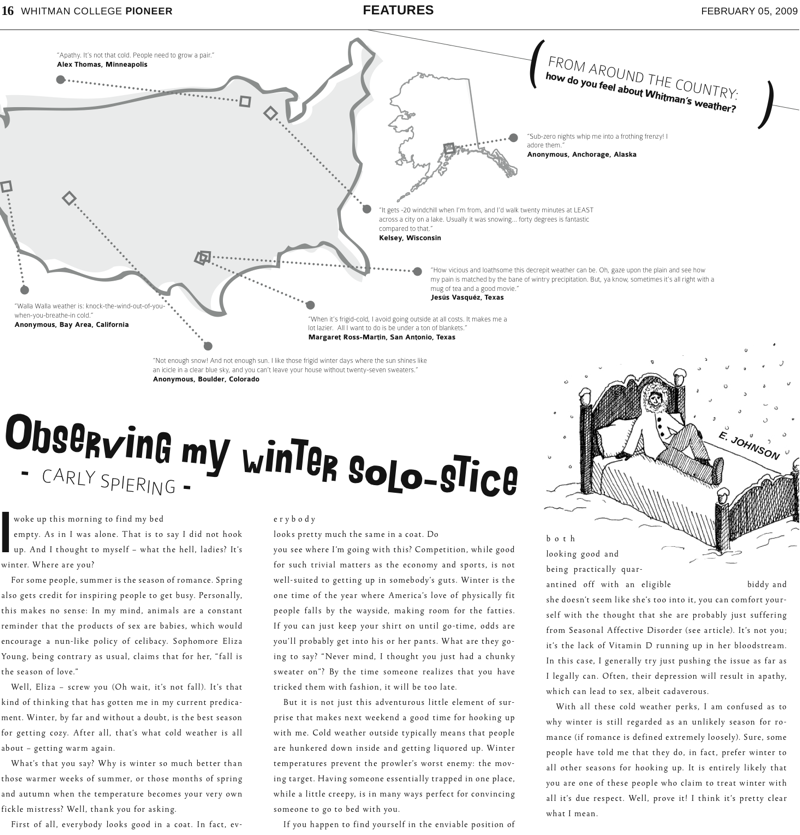This article is part of the Featured section. See how it originally look in print by clicking on one of the images below. Article continues below photos.
The upper level of the Welty Center is full of idiosyncrasies rarely seen in other buildings on campus. The floors have rugs, the corners have potted plants and the fireplace is topped by a candle display. Sharon Kaufman-Osborn’s office is equally comfortable, complete with a set of shelves that she installed herself and then covered in glass ornaments, stress balls and teddy bears. Kaufman-Osborn is a counselor, and she speaks to individuals and groups. From self-esteem therapy to sex therapy, she offers guidance to anyone who seeks it.
Q: What is some of the advice that you typically give in group sessions?
A: Part of my real focus is to build on strengths that people already have. In addition, I’m always dancing between what’s going on in the present and what happened in the past. Not that we whine and moan and complain about it and blame everything on the past, but that’s a way of understanding what we learned growing up. We do have control over what we do from that point on.
One of the things that I often include is that what we say to ourselves has a huge impact on what we feel. We often say things to ourselves that we would never say to people who we loved and cared about. Our magical thinking is that if we say mean things to ourselves then it will inspire us, and instead it just makes us feel really bad. A lot of the time growing up, I think that we have what’s called “kid logic,” and we understand things from a kid’s perspective, so we come to conclusions that aren’t really logical. We might pick up a message about ourselves where we think, for example, that we’re only lovable if we get good grades, or that if we express our opinion someone is going to not really value it. And a lot of that comes from earlier experiences.
My role, I feel, is to facilitate in expanding awareness, and also to really help somebody focus on taking care of him or herself. One of the ways I often talk about this is to put yourself in the center of your own circle, and then move outward from that space to give to the world.
Q: What would you say is the hardest part of your job?
A: Well, even though I try to separate somewhat, it’s really hard to see people in pain. But the balance of that is being touched by the amazing courage and strength that people have. I am astonished every day by the things that people get through. The strength of the spirit continues to amaze me, and that sort of balances witnessing peoples’ pain.
Q: So, going off of that, what’s your favorite part of your job?
A: I feel like everybody who comes to my office is different, and I am totally awed by watching people change. I couldn’t do this if I didn’t believe that change was possible. And I’ll often see people when they come back for their reunions, or they’ll write me letters, and it feels like such a gift that somebody invites me into his or her life.
Q: What is something that you would like every Whitman student to know?
A: The reason I got into this work was so I could encourage people to take care of themselves, and be reminded of this myself. To not abandon yourself, to just find a little time during the day even if it’s one of those crazy days. I think another thing that I’m continuing to learn about is being mindful. We can fast forward and we can worry and we can write stories with unhappy endings. We can do all kinds of things that take away from being in the moment. But being mindful, being present, breathing, noticing, focusing on what’s in front of us can really enable us to be who we want to be, to accomplish things, to tackle the hard challenges, and face what is amazing in the moment.







